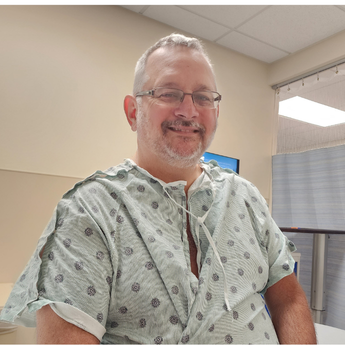By continuing to use our site, you consent to the processing of cookies, user data (location information, type and version of the OS, the type and version of the browser, the type of device and the resolution of its screen, the source of where the user came from, from which site or for what advertisement, language OS and Browser, which pages are opened and to which buttons the user presses, ip-address) for the purpose of site functioning, retargeting and statistical surveys and reviews. If you do not want your data to be processed, please leave the site.
Giving Voice to Canadians Living With Breast Cancer
Information
Young Women
Emotional Support
When you are diagnosed with breast cancer, the immediate focus will be on treatment. It is important, however, for you not to lose sight of how your diagnosis is affecting you emotionally. In fact, these symptoms will carry through to every aspect of your life during treatment and recovery.
Emotional wellbeing is crucial to quality of life, and very important to your overall wellbeing. A breast cancer diagnosis can be emotionally draining, and can cause a huge upheaval in your life. It is important to address these issues and get any treatment you may need, because ignoring them will not make them go away. In fact, it may make the problem worse. When faced with a disease like breast cancer, it is important for you to feel mentally healthy and able to fight it.
Sadness is a normal response to upsetting events, and though the feeling can be very strong at times, it usually does not last for extended periods. Depression, however, is more severe. It can be a constant in your life, and cause you to lose interest in the people, places and things you once enjoyed.
It is important to be able to tell the difference between normal, understandable bouts of sadness and a more debilitating, overwhelming depression. If you feel that you are experiencing depression, or that your sadness is becoming a problem, seek counselling. Ask your family doctor, oncologist or nurse for a referral to a counselling service in your cancer centre or hospital.
Beyond sadness and depression, there are many other emotional issues you will likely face. A breast cancer diagnosis can turn your world upside down. You will likely experience a range of emotions, from confusion and disbelief to anxiety. You may feel fear: fear of the disease, fear of the treatment, fear of losing your breast or hair, or fear of losing or leaving your loved ones. These are normal reactions, and though they may hurt and cause disruption in your life, they are normal.
Breast cancer can leave you feeling as though you lack control over your own self. This is an emotionally difficult time, and though the feelings you experience will not always be good ones, know that they are common. It is also important to remember that there is no shame in seeking help for your sadness, depression or other mental health issues.
Breast cancer support groups offer a caring environment in which to explore your feelings toward your diagnosis and treatment. Many people take comfort in knowing that there are others with the same issues. There are also many online chat rooms and message boards where you can find supportive peers, answers to your questions, and discussions of important issues.
In addition to counselling or group therapy, there are also different coping strategies you can engage in on your own. Many women find that writing helps them keep track of treatment and focus on their emotional journey. Try to jot down each day’s events, and describe your mood or any issues that have arisen.
You can also maintain a blog or website to keep family updated on your treatment. There are even websites dedicated to offering free hosting for people dealing with critical illness, such as Caring Bridge (www.caringbridge.org). Keeping a journal can help you track your emotional highs and lows and help keep your mind clear.
Be creative with how you choose to personally cope. Maybe you find solace in painting, running, meditation, prayer or taking a long, relaxing bath. Whatever it is, it’s important for you to feel strong and prepared. Mental health is vital to your wellbeing and quality of life, and should not be ignored!
SHARE
NEVER TOO YOUNG
Psychosocial information and support for young women with breast cancer




